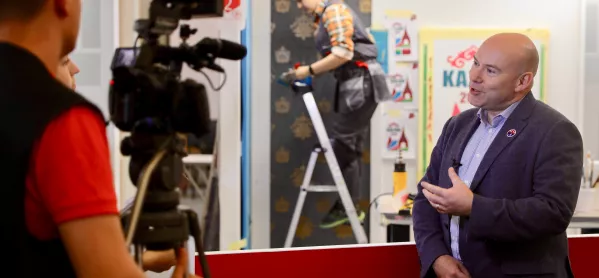The Pisa (Programme for International Student Assessment) results - the international rankings for school performance run by the Organisation for Economic Cooperation and Development (OECD) - came out this week. Rightly, huge amounts of scrutiny by media, politicians, policymakers and education stakeholders ensued to interpret the results, which showed that the UK’s performance has improved in reading, maths and science.
So, it was good news - but it came with warnings too about room for further improvement if the UK’s ambition is to compete with the best education systems in the world. The prescription from the OECD for the UK to catch up is to invest in teachers’ skills.
News: Pisa education rankings: How did the UK perform?
Opinion: ‘WorldSkills heroes deserve recognition, not tokenism’
Background: ‘The UK must look beyond the EU for skills excellence’
Now, this all sounds familiar to me from a skills perspective - especially as China, South Korea and Singapore rank in the top 10 across reading, maths and science league tables, just like in WorldSkills. That is why at WorldSkills UK we have been advocating the power of international benchmarking for some time; we have a lot to learn from these economies and their skills systems.
The power of international benchmarking
WorldSkills is an international benchmarking exercise pitting the best of each participating nation’s skilled young people against each other in competitions, with the final medal tally denoting the relative positioning of national skills systems. The results are therefore taken increasingly seriously by governments around the world - especially in the absence of an OECD international skills ranking system - and currently China is number one and Russia is number two.
But it was not always so. Russia was so shocked by its poor performance in the international competition six years ago that it established a whole new system and invested considerably in WorldSkills training methods as the way to drive up standards in training across its whole skills system. It worked, and Russia is now vying for the top spot with China. But more than this, the improvements worked because Russia - like China, Singapore and others - use the benchmarking to drive a more strategic approach to skills development linked to economic performance, as we set out in research published earlier this year with the think tanks RSA and FETL.
At WorldSkills UK, we will continue to promote innovative approaches to skills development from around the world. That’s why we aim to establish a centre of excellence - like Russia, South Korea and Brazil - so we can transfer and disseminate the training know-how of our international training experts into the hands of more professionals in more colleges and training providers.
By doing this, we will aid the development of world-class skill systems so more and more young people have access to excellence in teaching, training and assessment to help them and their employers succeed. And the development of a cadre of world-class educators in our technical education system is vital because, as the OECD says, the answer for improvement in overall education performance lies in investing in teachers’ skills.
So, at WorldSkills UK, we will continue to advocate for the power of international benchmarking because it gives alternative perspectives, which can prompt new thinking and drive change, and just as the Pisa benchmarking has driven focus and improvement for schools, we should be equally ambitious for skills, too.
Neil Bentley-Gockmann is the chief executive at WorldSkills UK




